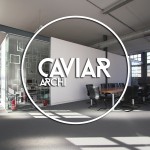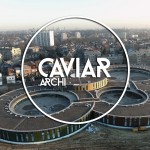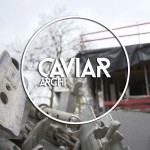In 2004 the Brussels-Capital Region decided to implement particularly ambitious energy policies in order to respond and subscribe to international climate goals.
an initiative of Brussels Invest & Export
with the support of Cécile Jodogne, State Secretary in charge of Foreign Trade
in collaboration with ecobuild.brussels
Project name : BRUSSELS BUILDS GREENER : Incentives & Building Process
Address : Brussels – Belgium
Names of speakers : Joël Solé (Bruxelles Environnement – Leefmilieu Brussel / Directeur de la division Énergie, air, climat, bâtiment durable) – Sabine Leribaux (architectesassoc. / Founding Partner) – Liesbet Temmerman (CERAA / Managing Director) – Geoffroy Bekkers (BESIX / Project Manager Sustainable Construction) – Chris Lee (JM Construction – LDPS / Manager)
Technical sheet of this architecture video clip
Journalist : Emma C. Dessouroux
Cameraman : Emanuel Pinto / Epiprod ; Didier Minne – Geoffroy Minne / Kinodoc – Julien Stroïnovsky / Novsky Films
Editing : Emma C. Dessouroux / Emanuel Pinto / Cristina Dias
Direction : Emma C. Dessouroux
Production : Les Délires Productions
Translation : MDR Translations
Substitles : Nicolas Gilson
Original transcription
Depuis 2004, la Région de Bruxelles-Capitale a décidé de mettre en place des politiques énergétiques particulièrement ambitieuses pour répondre et s’inscrire dans les objectifs climatiques internationaux, les objectifs européens qui nous étaient imposés.
Les mesures BATEX et PEB 2015, quand elles sont sorties, elles nous ont surtout réconfortés dans la direction que l’on avait déjà prise depuis longtemps sans décider de la prendre. C’est quelque part notre vraie nature d’aller vers ce respect de l’environnement.
BATEX, c’est l’appel à projet de bâtiments exemplaires mis en place par la Région de Bruxelles-Capitale depuis 2006, qui a été renouvelé 6 fois et qui donne un incitant financier important à des concepteurs ou à des maîtres d’ouvrage qui choisissent dans la conception et la construction de bâtiments neufs, ou dans les grosses rénovations, de mettre en œuvre des techniques les plus performantes possible sur le plan énergétique ou plus largement sur toutes les questions portant sur la construction durable du bâtiment.
Il y avait toute une série d’exigences à satisfaire : gestion de l’eau de pluie, biodiversité, choix des matériaux, performance énergétique, etc. Ça passait devant un jury et quand on était lauréat du concours, on recevait une aide financière de 100 euros au mètre carré. Avec 90 pour le maître d’ouvrage et 10 pour le concepteur. C’est un incitant financier qui a permis à beaucoup de maîtres d’ouvrage qui n’avaient pas encore d’expérience dans ce domaine ou qui hésitaient pour des raisons souvent financières de faire le pas. Ça permettait de rendre rentables, à ce moment-là, des investissements qui, sans ça, ne l’auraient pas été à ce moment-là mais, qui entre-temps, sont grâce à ce changement, cette évolution, devenus plus abordables pour un plus grand nombre aussi.
Après, il y a aussi un impact sur la façon d’apprendre et de construire et un impact sur la qualité. On nous demande en fait de construire des bâtiments d’une plus grande qualité.
L’impact BATEX ou PEB 2015 de la Région bruxelloise, c’est un impact qui est d’abord technique parce qu’il y a pas mal d’adaptations techniques à prendre en compte quand on fait ce genre de bâtiments.
La leçon principale que je tire sur ces 5 dernières années, c’est que l’innovation technique n’est pas la réelle question en ce qui concerne le passif, c’est vraiment une question d’économie urbaine et d’économie de l’immobilier en milieu urbain.
Les BATEX et le PEB 2015 ont réellement transformé notre façon de travailler avec les bureaux d’étude et surtout avec les entreprises, il y a une sorte d’émulation qui s’est mise en place, un vrai challenge. Par exemple, au niveau de l’énergie, faire un bâtiment étanche à l’air, c’est chaud ! Faut vraiment y arriver. Donc, il faut un vrai esprit d’équipe. Je ne sentais pas cet esprit d’équipe, il y a 10 ou 12 ans. Aujourd’hui à Bruxelles, quand on fait un projet avec un entrepreneur, avec des entreprises parfois ultra-compétentes – et même si elles ne savent encore rien, elles veulent faire l’effort pour apprendre – cette émulation-là a réellement changé notre façon de travailler en équipe.
Avant nous étions dans un domaine de spécialistes, presque un marché de niche. Aujourd’hui, quand on voit l’activité de l’ensemble des membres du cluster ecobuild, par exemple, on sait que ce n’est plus une niche. On a une myriade d’acteurs allant du concepteur jusqu’à l’entreprise qui pose la dernière pierre qui dispose d’une vraie expertise de terrain, qui peut la partager et ça fait tache d’huile. Ça se répand en fait.
English subtitles
In 2004 the Brussels-Capital Region decided to implement particularly ambitious energy policies.
This was to respond and subscribe to the international and European climate goals that were laid down for us.The BATEX and PEB 2015 measures, when they were issued, came of some comfort to us.
They pointed in the same direction as the one we had already been going in for quite a while, though without having made a conscious decision to do so.
It’s in our nature somewhere to move towards more respect for the environment.BATEX, a call for exemplary building projects, was set up by the Brussels-Capital region in 2006, and has been renewed six times since then.
It gives an important financial incentive to designers and project owners, who, in the design and construction of new buildings or major renovations, choose to deploy techniques that are as efficient as possible both in terms of energy usage, and more broadly in terms of all issues impacting on the sustainable construction of the building.There was a long list of requirements to comply with.
Water and rain management, biodiversity, choice of materials, energy performance, etc.
It went before a jury and when we won the competition we were given financial assistance of 100 Euros per square metre.
With 90% for the project owner and 10% for the designer.
This is a financial incentive that has enabled many project owners who didn’t have too much experience in this area, or who were hesitating for financial reasons, to take the first step.
And that enabled investments to be feasible, which would not otherwise have been made at that time.
Also, because of this change, such investments become more affordable for a larger number of people.Then there is also an impact on ways of learning and building, and also on quality.
We are asked in fact to construct higher quality buildings.The impact of BATEX, or PEB 2015 in the Brussels region, is first of all technical, because there is quite a bit of technical adaptation to be taken into account when doing these kinds of buildings.
The main lesson that I’ve learned over these past five years is that technical innovation is not the real issue when it comes to the passive standard.
The real issue is one of urban economics, and of the economics of real estate in an urban environment.The BATEX and the PEB 2015 have really transformed our way of working with consultants.
Especially with the companies, there is this sort of healthy competition, which is really challenging.
For example, in terms of energy, if you construct an airtight building it gets hot!
So you need a real team spirit, which I never really felt 10 or 12 years ago.
These days in Brussels, we do projects with contractors, with sometimes highly competent companies, a nd even if they don’t yet know anything about it, they are keen to make an effort to learn – this competition has really changed our way of team working.Before we were in a specialist area, almost a niche market.
These days, looking at all the activities of the members of the ecobuild cluster as a whole, for example, we realise it’s no longer a niche.
We have a myriad of actors, from the designer to the company who will lay the last brick, who have a huge amount of field expertise.
They can share this and it has a ripple effect. It spreads out, really.








Laisser un commentaire